9483
AiS
Session 8b
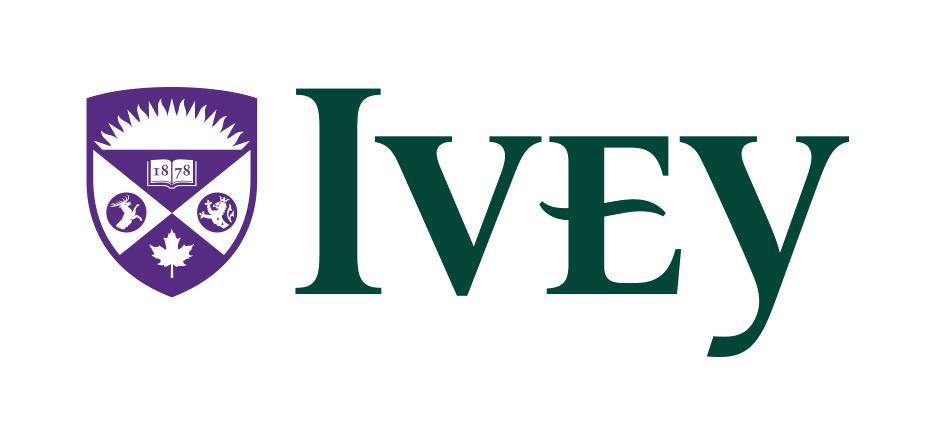

Joshua
Foster

Agenda
- MobLab: In-class Simulation.
- Case: Policing Politics: Facebook and a Politician's Right to Free Speech.
Simulation instructions.
- The situation: there is a jar that contains only blue and red balls (you can't see them).
- What you do: you must determine whether the jar has a majority (60%) of blue balls or red balls.
- If you guess correctly, you get 100 bragging right points, otherwise you get nothing.
Simulation instructions.
- How it works: each member of a group (6 members total) will take turns privately drawing a ball from the jar, observe whether their draw is blue or red, and then put it back. Then, they make their guess for what the majority color is and share this guess with the rest of the group.
- Once everyone in the group has drawn a ball and revealed their guess, the group will learn the true majority color.
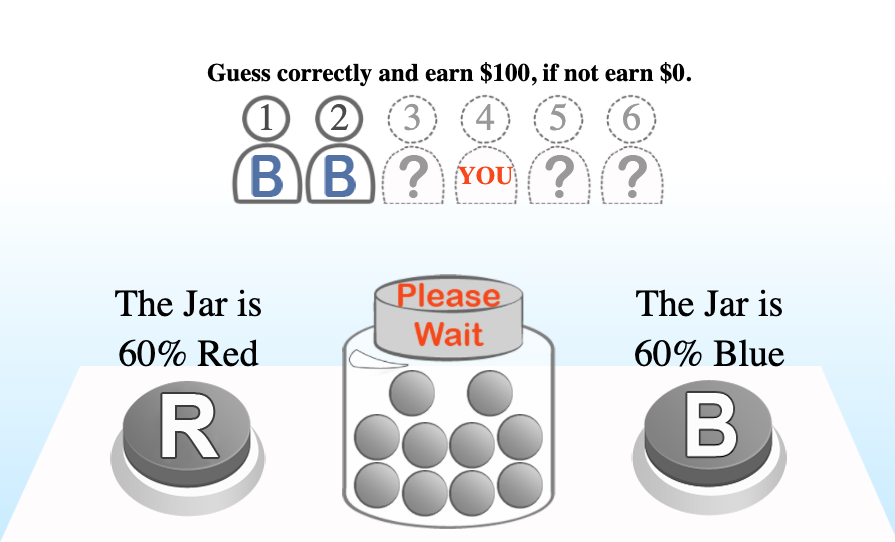
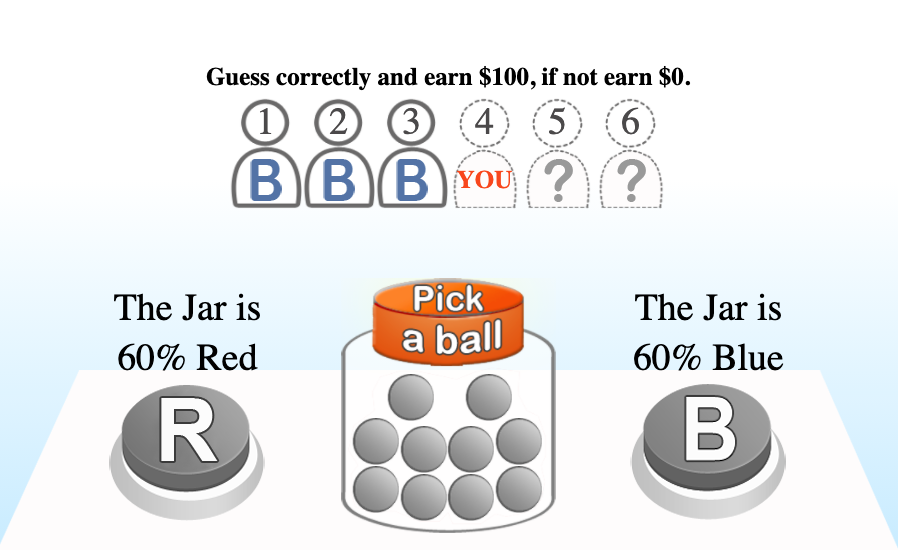
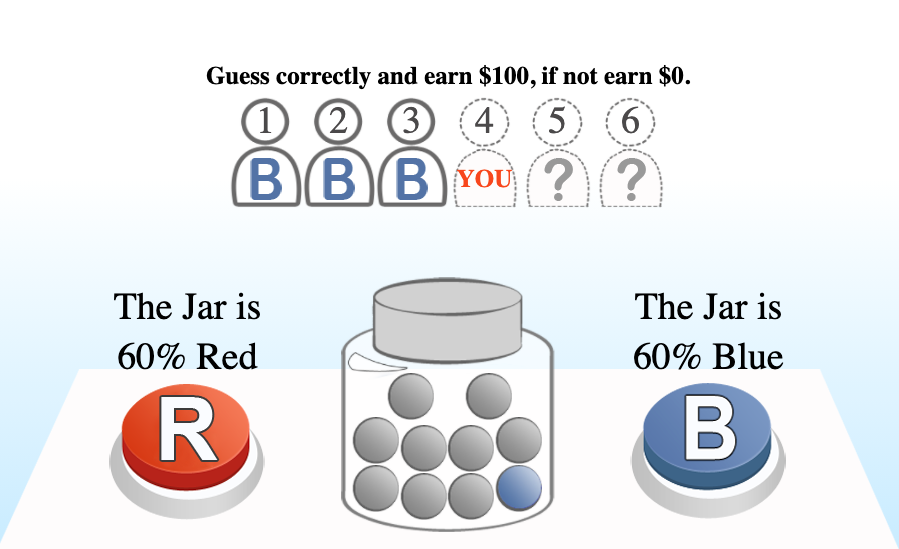
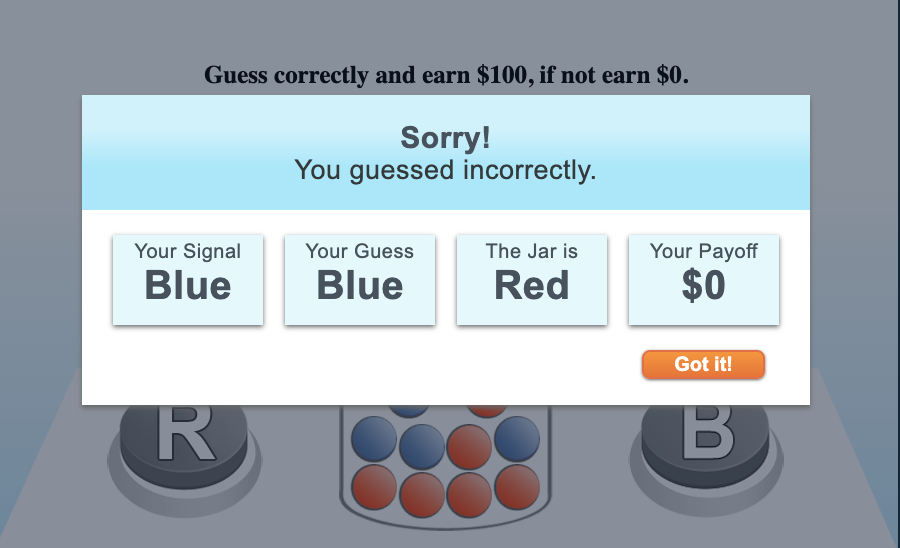
To summarize:
- You'll be randomly placed into groups of six.
- Members of your group will take turns privately drawing a ball from the jar with replacement.
- Each member will signal to the others what color they think the majority color is.
- The true majority color is revealed once all guesses are made.
- Fake internet points ensue to correct guessers.
- Rinse and repeat a few times.
Questions?
What happened in the simulation?
What specifically made this task difficult?
Rational herding.
In a social learning environment, it is often rational for an individual to ignore their private information and follow the "herd" (i.e., adopt the beliefs and actions of those they observe).
Mapping the Simulation to Social Feeds
| Simulation | Social Media |
|---|---|
| Private draw | Personal experience / niche facts |
| Public guess | Like/reshare/comment counts |
| Order of moves | Ranking + timing on the feed |
| Payoff | Engagement, identity rewards, reach |
| Herding threshold | Trust in sources; scarcity of attention |
Why are network effects so important to social media companies?
Reed's Law.
Social networks increase in "value" in proportion to $2^n$ of their size $n$, which allows for the formation of subgroups, as they allow for an enormous number of potential group formations.
How many connections to you have on LinkedIn?
How many have you communicated with in the last 3 months?
Dunbar's Number.
An upper-bound estimate on the number of relationships an individual can maintain at once.
- First discovered by primatologists.
- Correlated with the size of the neocortex.
- Human's mean group size $\approx$ 150.
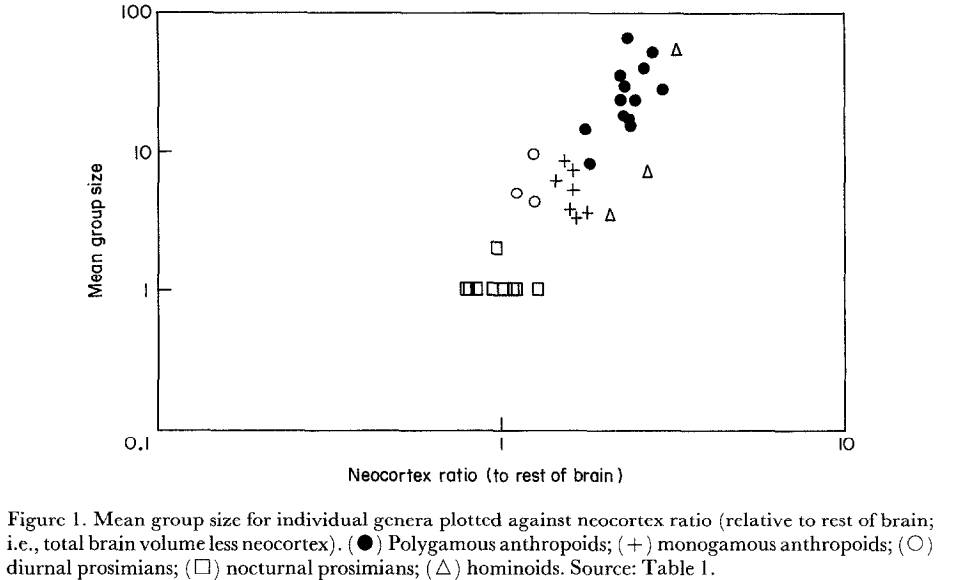
How do Reed's Law and Dunbar's Number jointly shape the spread and evaluation of true and false information on Facebook?
Hint: think about information volume vs. attention and group scale vs. trust capacity.
What behavioural biases may be playing a role in the proliferation of "fake news" on social media platforms?
Motivated Reasoning.
A cognitive process in which justification is provided for the individual's preferred outcome, despite the presence of contradictory evidence.
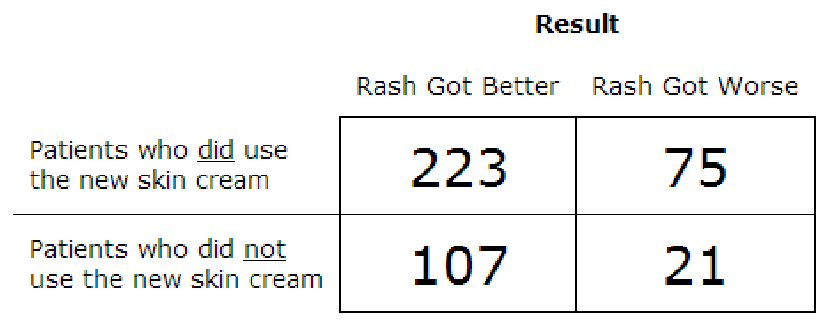
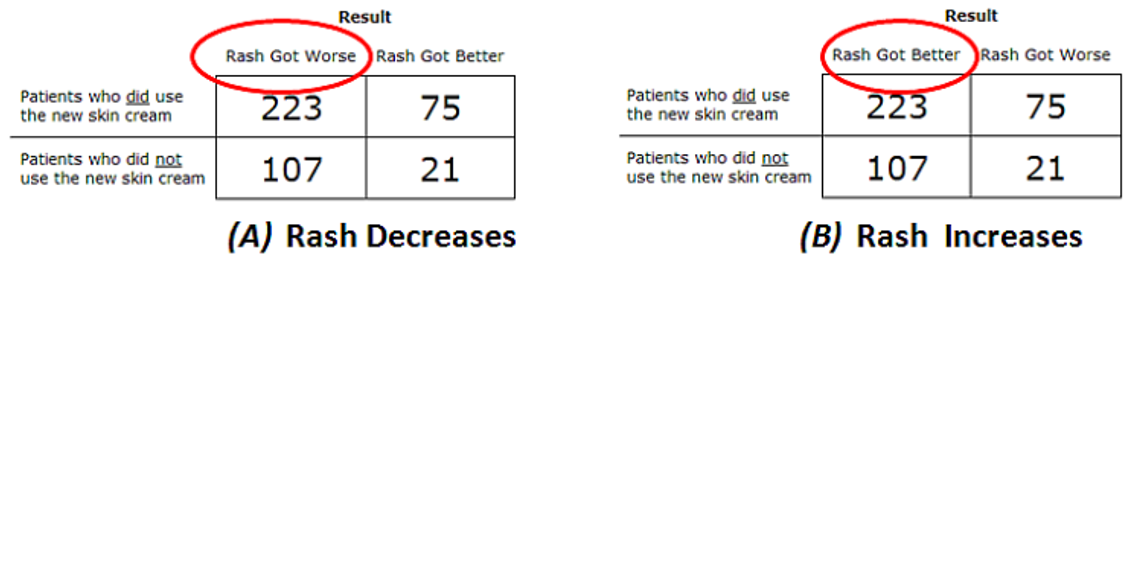
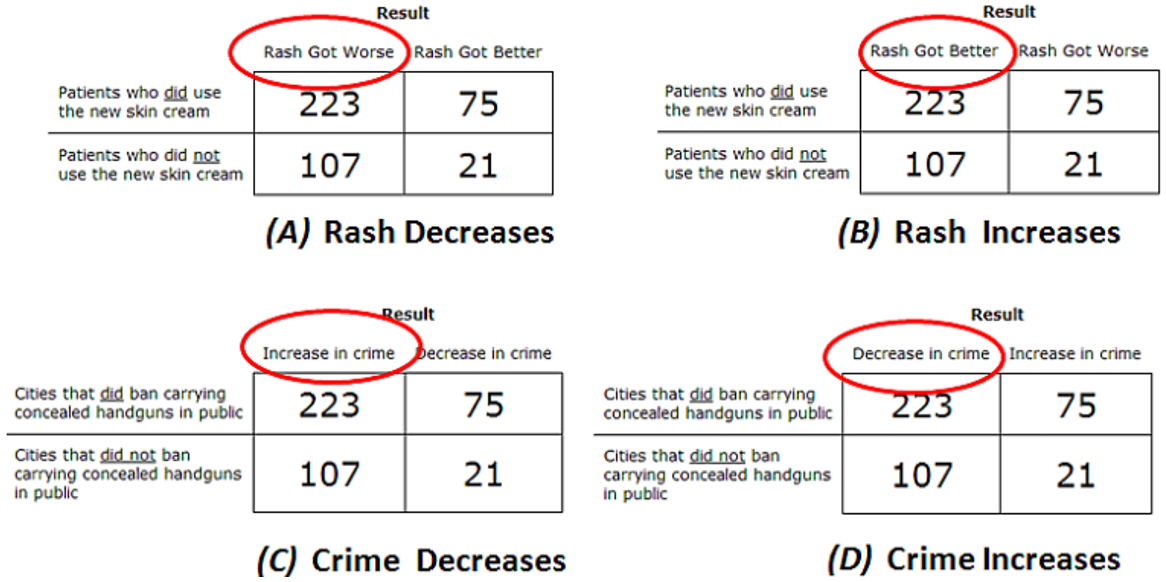
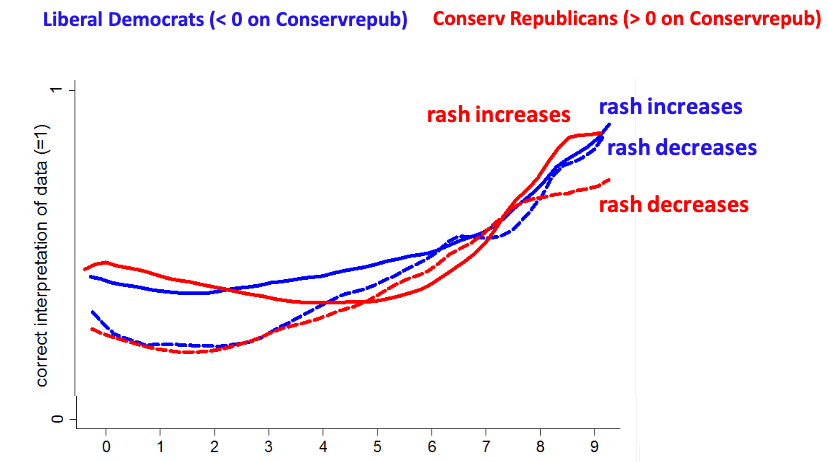
Numeracy Score
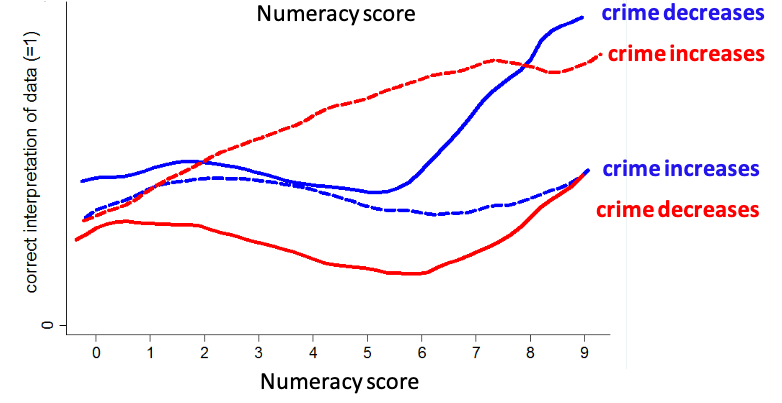
What would the objective of a welfare maximizing policy be with respect to "fake news"?
What responsibility does Facebook have in implementing this policy?
What does the case suggest Facebook can do regarding political speech?
- Ban posts from politicians.
- Allow posts from politicians with fact-checking.
- Allow unrestricted posting from politicians.
Which option do you recommend for Facebook?
Does Facebook have sufficient incentive to implement a welfare-maximizing strategy against "fake news"?
Is there a public solution that is better?
What might a regulator do here?
Key Takeaways.
Incorrect information cascades can be the result of:
- Rational Herding.
- A rational means of synthesizing various information.
- Motivated Reasoning.
- A behavioural means of supporting a preferred outcome.
Either can lead groups to incorrect beliefs despite many individuals being presented with correct information.